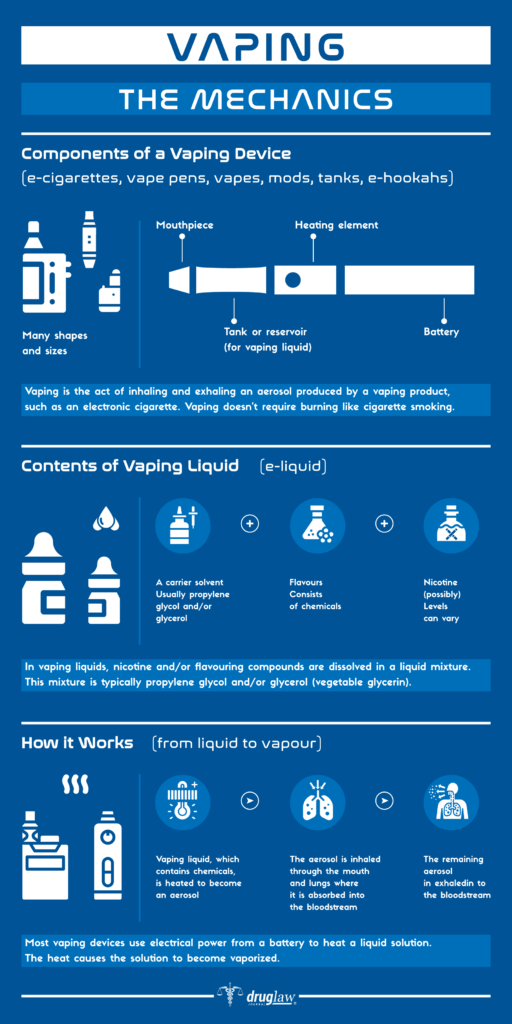Last week, the Food and Drug Administration (FDA) ordered three small e-cigarette makers to pull their products from the market, signifying the beginning of a larger agency crackdown on vaping products. JD Nova Group LLC, Great American Vapes, and VaporSalon must pull 55,000 existing or future flavored products from stores. These products include flavors like Apple Crumble, Dr. Cola, and Cinnamon Toast Cereal.
FDA Crackdown Against Flavored Vaping Products
According to regulators, the companies failed to provide “sufficient evidence” that their products offer a net public health benefit for adult smokers when compared to the “threat posed by the well-documented, alarming levels of youth use” of flavored vapes. These FDA orders mark the agency’s first marketing denials for e-cigarettes. “We know that flavored tobacco products are very appealing to young people, therefore assessing the impact of potential or actual youth use is a critical factor in our decision-making about which products may be marketed,” Janet Woodcock, acting commissioner of the FDA, said in a statement.
Of course, the agency’s orders come during a broader fight against the future of vaping. Public health advocates believe that e-cigarettes, especially flavored ones, have spurred an epidemic of nicotine-addicted youth rather than helping adults quit smoking. The FDA will determine the future of about two million vaping and other non-cigarette tobacco products by September 9th.
Vaping advocates, however, are alarmed at the FDA’s decision and shared a warning that the broader industry is in danger. As one tweet stated, “FDA bans 55,000 flavored e-cigarette products, crippling three vape companies. FDA clams applicants failed to demonstrate they are a net benefit to public health. No worries though, people can just switch back to smoking! #publichealth”
E-Cigarettes and America’s Youth
The focus here lies in potential danger to America’s young people. As the FDA prepares to rule on JUUL and other major companies, a regulator stressed that the agency would be carefully considering the potential risk to children. “Companies who want to continue to market their flavored [e-cigarette] products must have robust and reliable evidence showing that their products’ potential benefit for adult smokers outweighs the significant known risk to youth,” Mitch Zeller, director of the FDA’s Center for Tobacco Products, said.
For more information about the investigation into flavored vaping products, contact us today.
Additional Reading:
Judge Advances Bellwether Lawsuit Against JUUL for Deceiving Marketing Tactics
JUUL Labs Faces “Substantive Scientific Review” from the FDA


